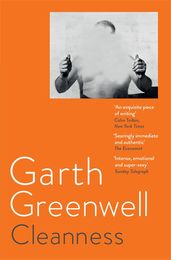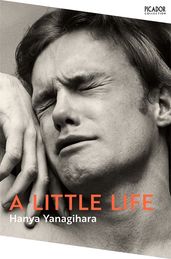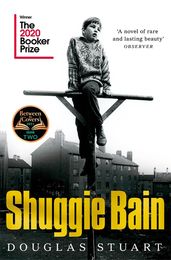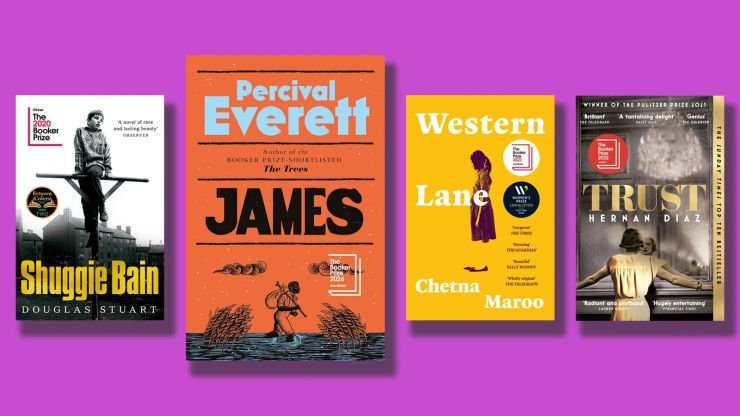Douglas Stuart on his favourite LGBTQIA+ books
Douglas Stuart, author of the 2020 Booker Prize winner Shuggie Bain, shares the LGBTQIA+ books that have had a lasting impact on him.
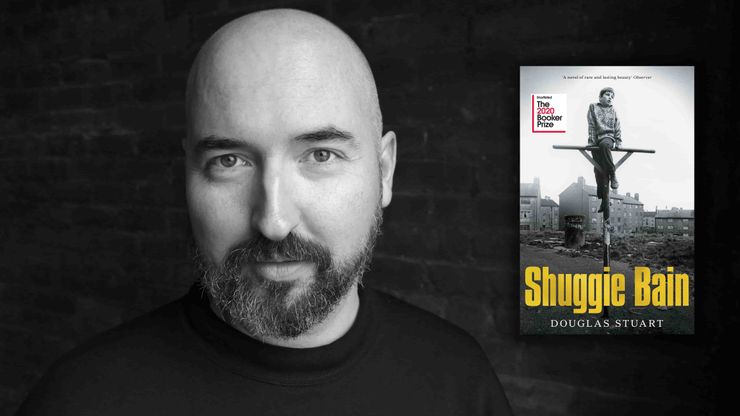
A novel that Booker Prize judges described as ‘an amazingly intimate, compassionate, gripping portrait of addiction, courage and love,’ – Douglas Stuart’s heartbreaking debut Shuggie Bain is the winner of this year’s prize.
The story, set in Glasgow in the 1980s, follows Shuggie, a young boy growing up in a decimated mining town and struggling to help his mother in her battle with alcohol addiction. But despite the ruthless poverty that surrounds him, Shuggie believes that if he tries his hardest, he can be 'normal' like the other boys and help his mother to escape the depths of hopelessness.
Since its publication, the story of Shuggie and Agnes have captured the hearts and minds of readers the world over, and in celebration of the publication of the paperback edition the Glasgow School of Art and Cobolt Collective, a collective of Glasgow-based mural artists, have created a 30m long mural on the side of the Barrowland. This iconic building in Glasgow's cultural history is a place of vital importance to the characters and communities in the book. Quoting from the novel: 'You'll not remember the city. You were too wee. But there's dancing, all kinds of dancing', and using a font called Flourish, specifically designed for Shuggie Bain by GSofA students, this mural will remain on the Barrowland for decades to come.
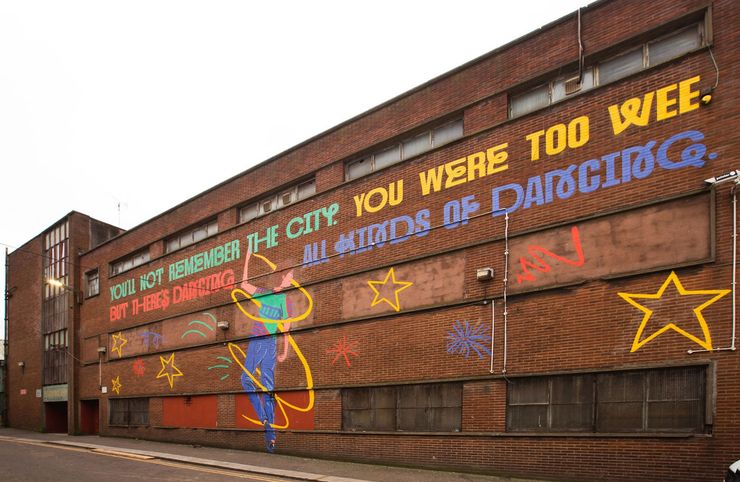
Here, Douglas shares some of his favourite LGBTQIA+ books, from a classic by James Baldwin to the best in contemporary literary fiction.
The Swimming-Pool Library
by Alan Hollinghurst
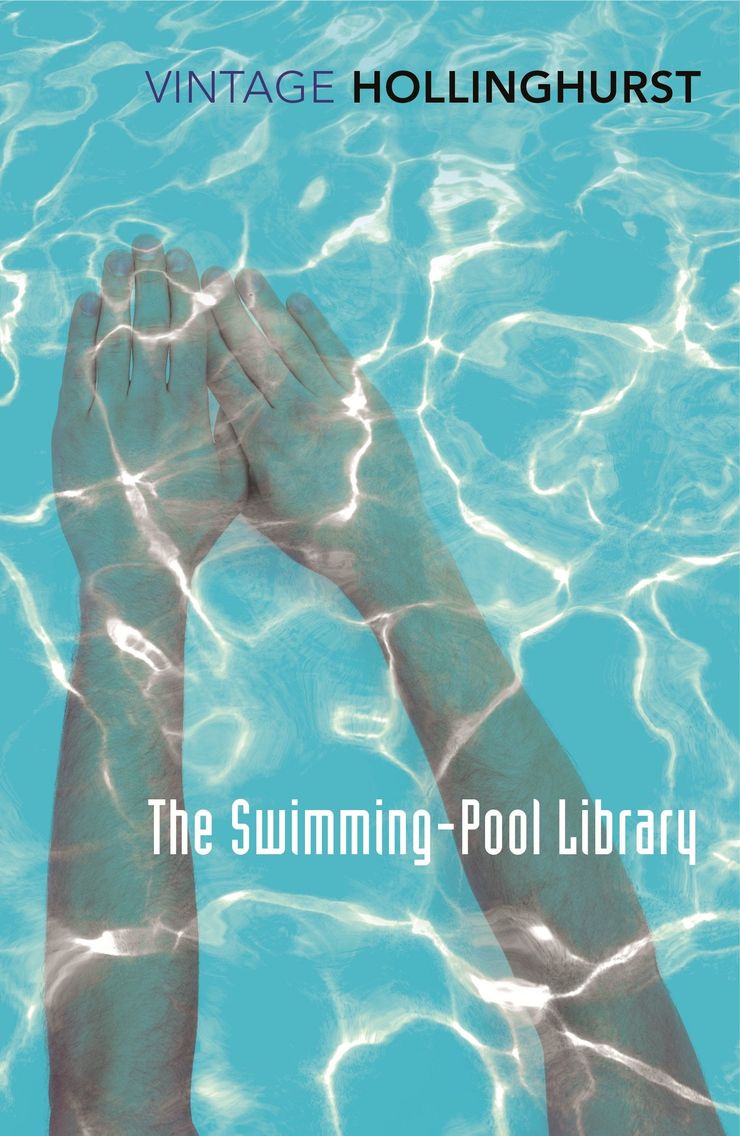
I love all of Alan Hollinghurst’s books, but I think chief amongst them might be The Swimming-Pool Library. It is rawer and a little more badly behaved than some of his later works, and I love that. It is a portrait of William Beckwith, who is a young aristocrat who idles and spends his time cruising around 1980s London, looking for men to sleep with. The way Hollinghurst writes about male beauty is just stunning.
What I love about this book especially is, if we read to travel, this is such a beautiful glimpse into gay life in London before AIDS really became the crisis that we know it to be. But it’s also a glimpse into the upper class and the privilege that is there. It takes us behind some doors that I don’t think I’ll ever get allowed into.
One of my favourite parts of the book is actually the love affair that happens between Beckwith and Phil, who’s a working-class porter at the Queensberry Hotel. I read this book not long after I’d read Maurice by E. M. Forster, and Hollinghurst writes about that same desire across the classes but he does it with all the pleasure and none of the shame.
As Meat Loves Salt
by Maria McCann
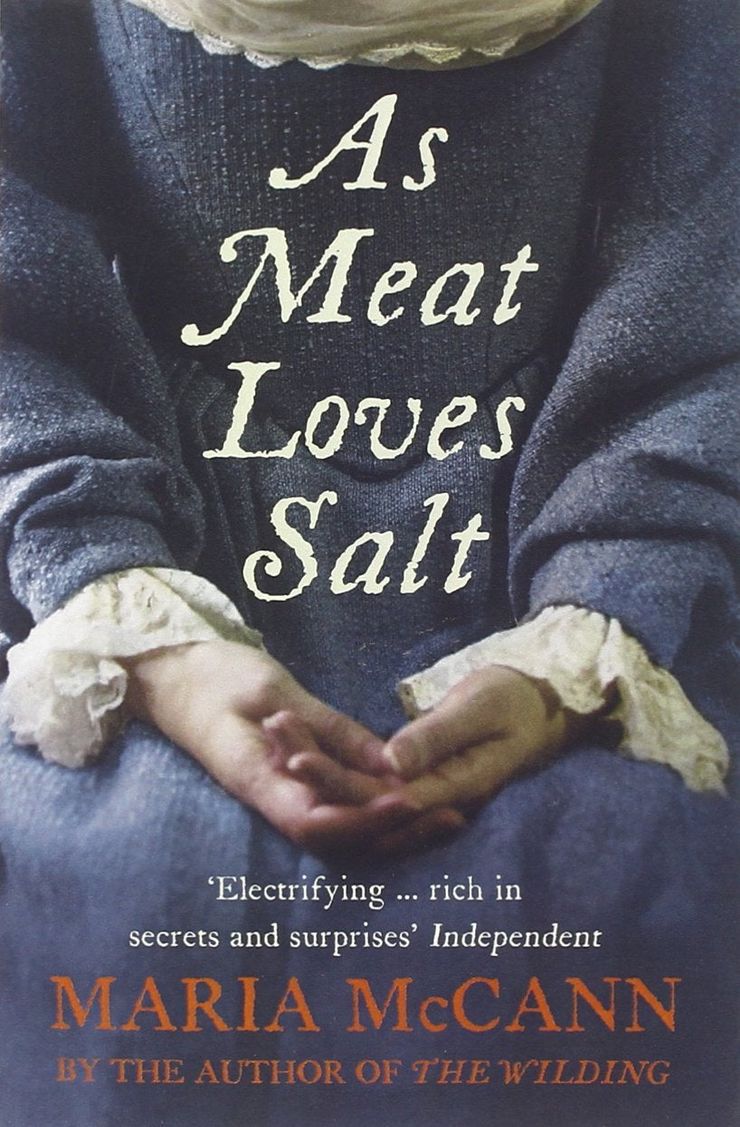
I have read this book about six or seven times, and it gives me that big sweeping romance that some people might feel with Wuthering Heights. It’s set in the 17th century at the time of the English Civil War, and it tells the story of Jacob Cullen, who is a manservant serving in a large house. We know from the very first pages that Jacob is a troubled man, and he’s probably very brutal, because he treats his bride appallingly on their wedding night.
He heads off to cleanse himself in the bloods of war, but when he’s battling across England he meets Christopher Ferris, who’s a much more sensitive man. At first they both fall in love, but as the prophets of Jacob’s earlier brutality come home to them both, everything is torn apart in wrath and anger. What is really terrific about this book is how rich the historical detail is. It’s a really sweeping book, and it’s so immersive in how it makes you feel the bloods of war and the bloods of passion. It is my pure pleasure read and even though Jacob Cullen is a bastard, I think I might be a little bit in love with him.
Edinburgh
by Alexander Chee
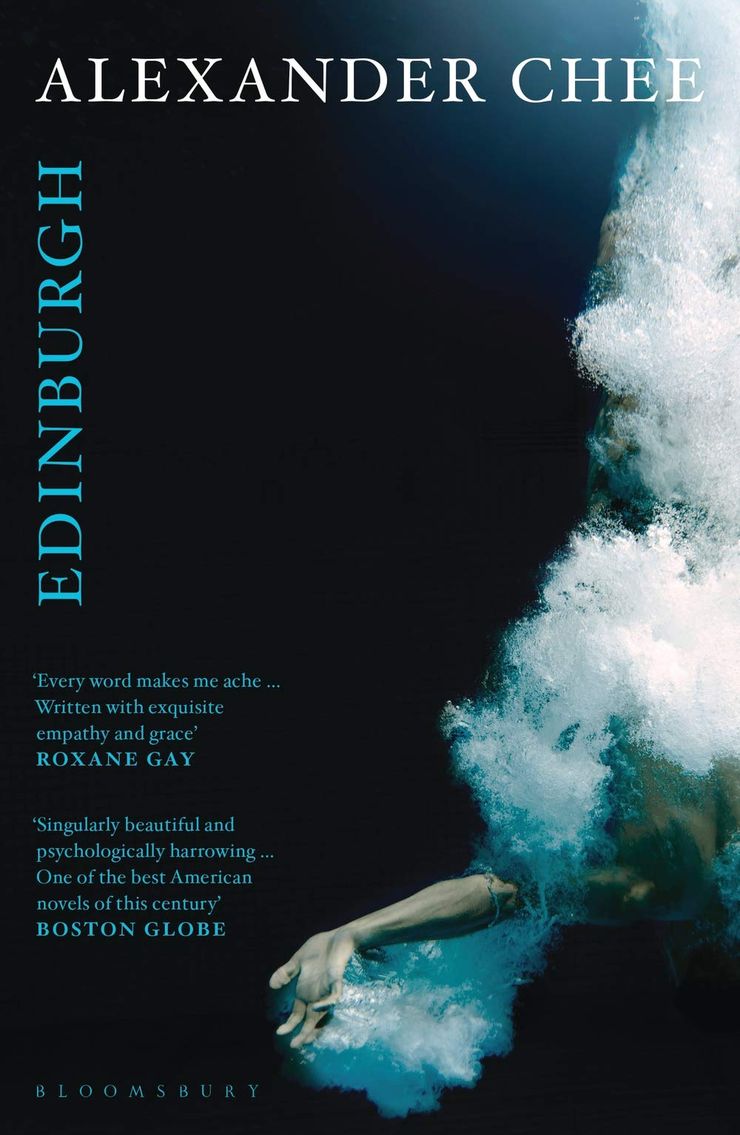
I love Edinburgh by Alexander Chee. I only discovered this book about five years ago and although that was a delight, I was a little bit angry that I hadn’t come to it sooner. It’s the story of twelve-year-old Fee, who is a Korean-American boy. He’s a choir boy who goes away to camp with a bunch of other boys, where they’re abused by their choirmaster. The book follows Fee as he grows up and as he survives that sexual trauma, and it’s a sad but very beautiful portrait of the guilt that Fee feels when he survives this trauma when some of the other boys don’t survive. I can’t give too much away about the plot, but later, when Fee becomes a professor and he meets a young student of his, all of the earlier horrors and brutality of his childhood come home to roost. It’s really a masterful thing that Alexander Chee has achieved with this book.
Oranges Are Not The Only Fruit
by Jeanette Winterson
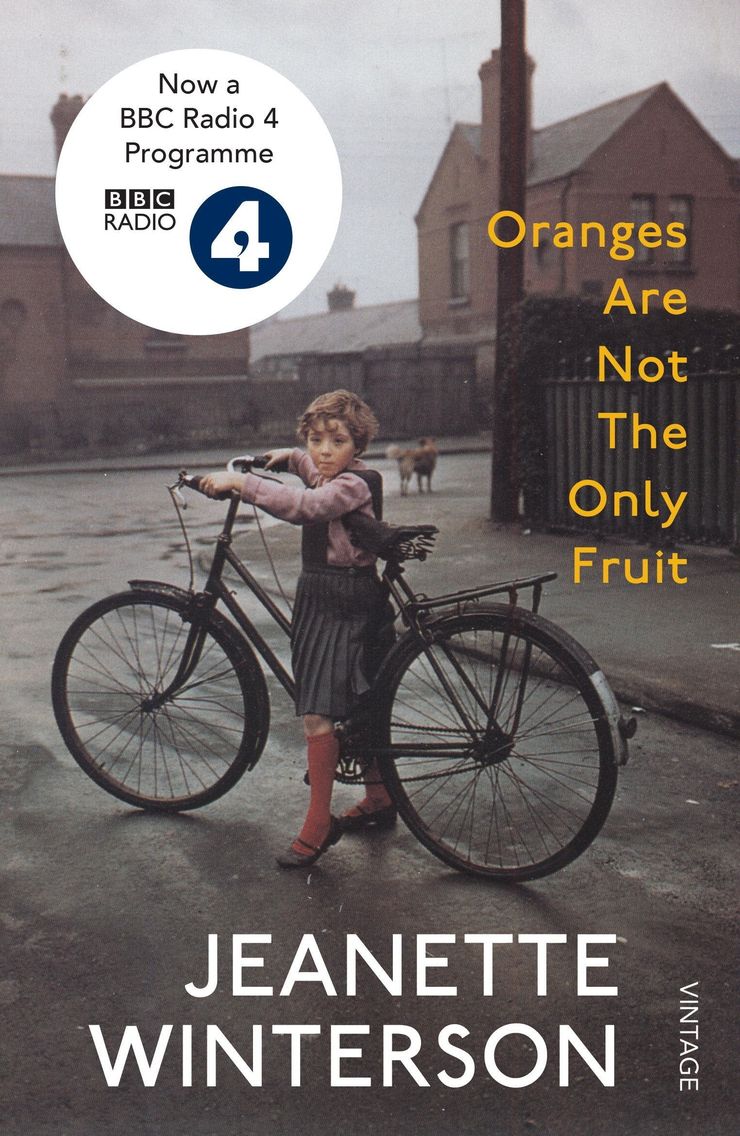
This is a classic of my childhood. The book tells the story of Jeanette, who is adopted by two very pious, devout, evangelical Pentecostal parents, and then it’s a coming of age tale where, as Jeanette thinks she’s destined for the missionary life, she actually starts to develop feelings for other girls. What then happens tells the tale of how the church tries to exorcise her, and although there is an exorcism in the book, the book is both sad and incredibly warm and I love it for that.
I think what speaks to me most about the book is the tale of conformity and the struggle most of us have as queer people sometimes, with trying to conform with our family. What’s beautiful about the book is that Jeanette Winterson shows the whole journey that comes with self-acceptance and how that battle between parents and children can rage.
What I especially love about the book is the Britishness of it. Some of the most amazing scenes are just the scenes of working-class women together, being petty or snobby or a little bit snidey, but it’s just so beautifully rendered. In a lot of ways, it gives me that feeling of Alan Bennett, capturing the really glorious small moments of British life.
The Naked Civil Servant
by Quentin Crisp
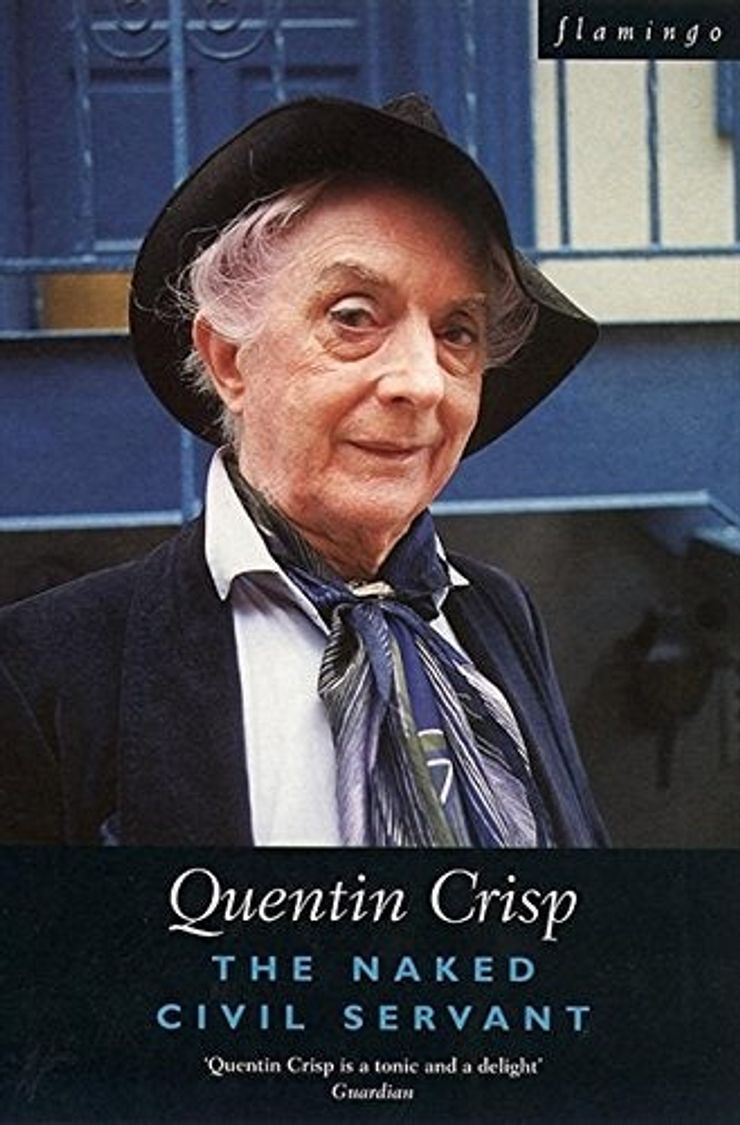
I have quite a complicated relationship with this book, and with Quentin, because every time he would come on the television with his amazing lavender quaff I would feel a little bit nervous in case he betrayed some secret about my own queerness that I was trying to keep hidden. But later, when I came to this book as a young man, I was just blown away by Quentin's bravery in choosing to be so visible with his gender non-binary status in 1930s England. That is an act of absolute resistance and it's incredible that he had the bravery to do that.
This is a collection of stories from his early years and it's really just weaving together how he comes to be in his personhood in the world and it shows you his refusal to conform. They are brilliant, they're funny, they're often quite sad and they're just full of great anecdotes and quotes. Some of my favourite parts are the parts about the relationship between father and son and I love this one line he said about his father, it goes: ‘My father hated me chiefly because I was revolting but also because I was expensive,’ and the book is just full of little shiny bits like that.
The Lost Language of Cranes
by David Leavitt
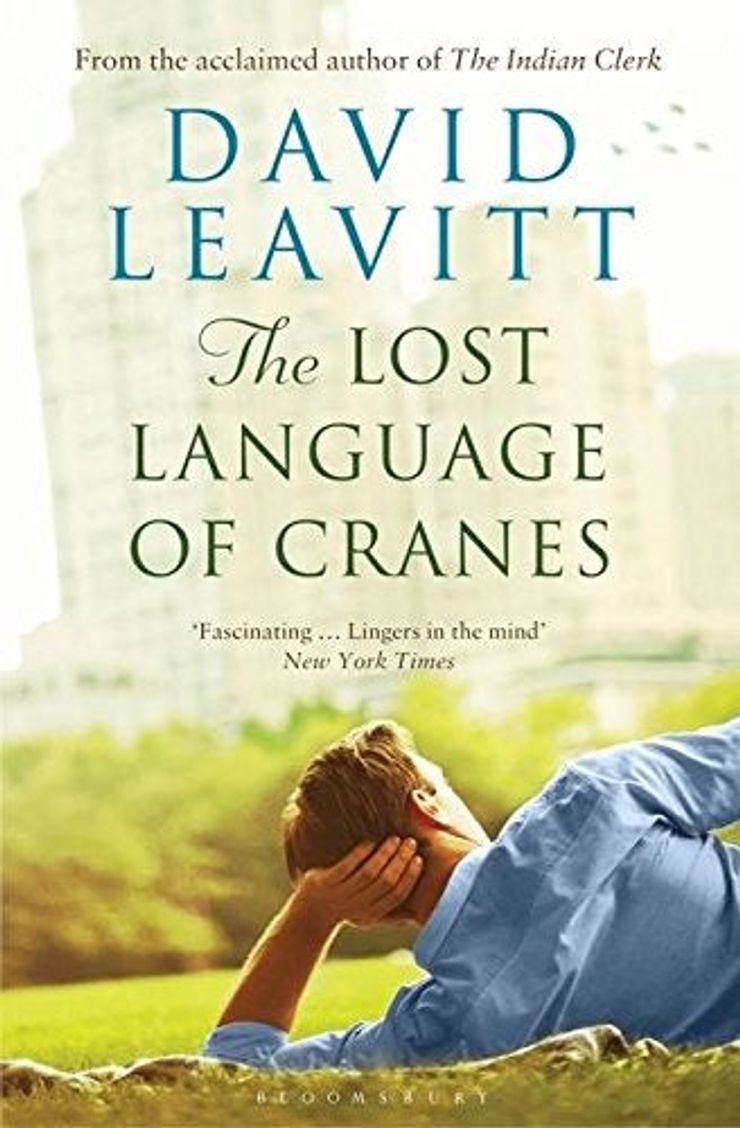
What David Leavitt does is he creates a world and a time for me that I will never be able to visit in my real life and I just love the immersion of that. The Lost Language of Cranes is set in 1980s Manhattan and it's the story of Philip, who's a young man who is trying to find love and trying to come out to his parents. His parents are incredibly concerned about the gentrification of the city and they look like they're about to lose their apartment because of rising rent prices. While Philip's trying to come out to them, his father is actually struggling with a secret of his own and that is that he is also gay.
It's a beautiful book, it's beautifully written but it's a real capsule of a time and a place and as someone who lives in New York now, I love to read about the seedy porn theatres and the back rooms of gay bars that no longer exist as the city was cleaned up. But what I think the real power of this book is in how these two characters, father and son, hold so much in common but because they cannot share their secret it pushes them really far apart. It's a really powerful book, I absolutely love it.
Cleanness
by Garth Greenwell
I am a fan of all of Garth Greenwell's writing. I really was blown away by What Belongs to You and haunted by the story of the Bulgarian hustler Mitko. I think about the characters often, but I really adore his new collection of short stories which is called Cleanness. These are interwoven stories that are told from the perspective of an unnamed narrator who is looking back on his time teaching abroad in Bulgaria.
It is a look at gay connection, sexual desire, encounters, love and loss and Garth’s prose is just really stunning. It casts a real spell and it lulls you with its beautiful rhythm. Although all the stories are really interconnected, the part I really enjoy the most is when he talks about the relationship he has with a character named R, who is a closeted foreign exchange student. As they fall in love and then as they fall out of love through their long-distance relationship it's just some beautiful writing.
Giovanni's Room
by James Baldwin
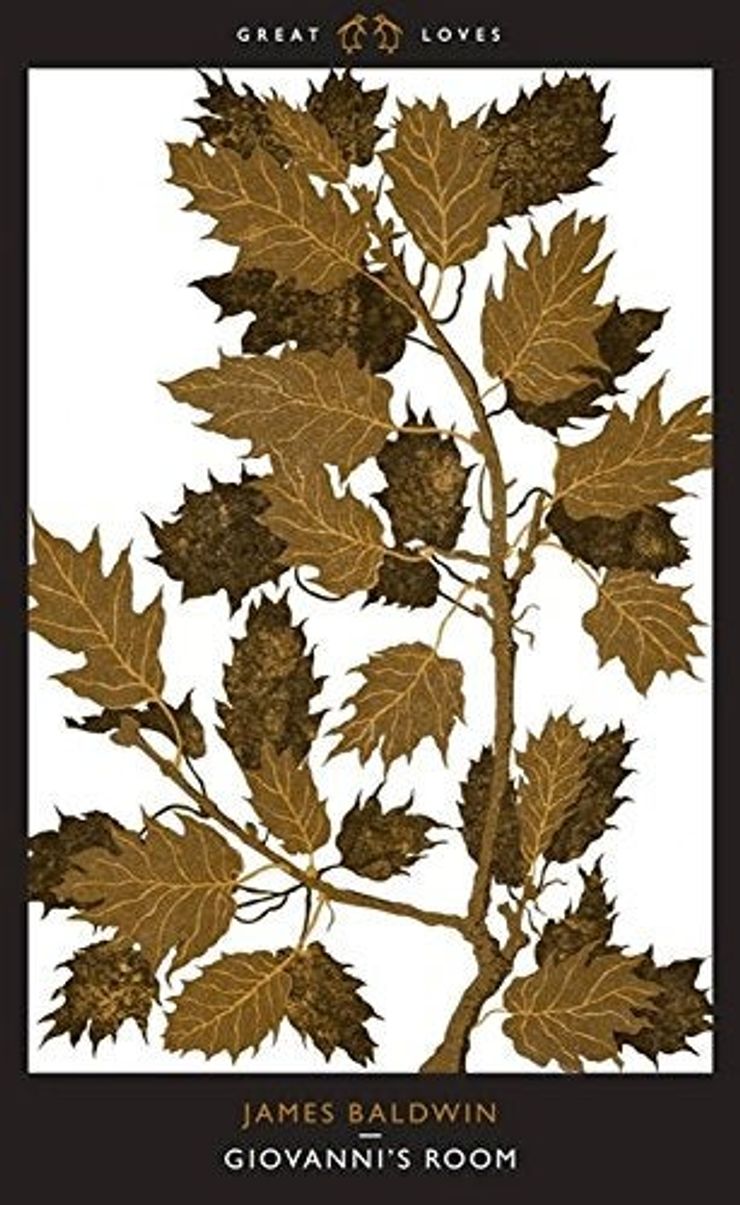
I love Giovanni's Room by James Baldwin. It is the story of an American in Paris set in the 1950s. David has just proposed to his girlfriend Hella, but he actually falls in love with Giovanni, an Italian bartender, and then is also repulsed by that lust. I love this book because it is such a complex look at feelings about desire and repulsion at the same time, and about the light and the shade of intimacy and passion. My love for this book is also grounded in frustration because I actually love the two men at the heart of it and it always makes me angry that things don't always turn out, actually they definitely do not turn out, as well as I had hoped they would for them.
The last time I read this book I read it on the Isle of Barra in the very north of Scotland. It was in March and the wind was absolutely scalping off the sea and it really is the power of James Baldwin that he could pick me up and bring me into Giovanni's actual room and make me feel all those beautiful feelings from 1950s Paris.
A Little Life
by Hanya Yanagihara
I truly love A Little Life by Hanya Yanagihara. I think it's one of the most powerful books I've ever read. A Little Life is part of the reason why Shuggie Bain is in the world, because I love A Little Life so much that I sent my manuscript to Hanya's agent and was thrilled when it was accepted by her.
A Little Life tells the story of four friends who are studying at a very prestigious, unnamed New England college and then embark on professional lives in New York City. Although it's about four friends, we end up focusing on one character called Jude Saint Francis. He is a very melancholy, quiet man and we realize as the book unfolds that he was a foundling who was abandoned in a dumpster and then raised by a brotherhood of monks. As we learn more about Jude's background, it starts to become this real portrait of Jude's brutal childhood and all the abuse he suffered. As the four characters’ careers skyrocket, Jude can't find the quiet or the happiness in himself and even when he falls in love with the dashing, winning, very kind Willem he still can't find that peace within himself.
What I really admire about this book and about Hanya Yanagihara is that I think it's quite legendary that she refused all of the edits from her editor because she had such a vision for her work. But what I think her bravery really is is that she really makes us fall in love with some characters over 700 pages and then she denies us all of her wishes for them. I think to do that takes an awful lot of courage and an awful lot of commitment to your vision. I love A Little Life, I was absolutely destroyed by it.
Discover Douglas’s Booker Prize-winning debut, here.
Shuggie Bain
by Douglas Stuart
Set in a poverty-stricken Glasgow in the early 1980s, Douglas Stuart’s Booker Prize-winning debut is a heartbreaking story which lays bare the ruthlessness of poverty and the limits of love. Agnes Bain has always dreamed of greater things, but when her husband abandons her she finds herself trapped in a decimated mining town with her three children, and descends deeper and deeper into drink. Her son Shuggie tries to help Agnes long after her other children have fled, but he too must abandon her to save himself. Shuggie is different, and he is picked on by the local children and condemned by adults. But he believes that if he tries his hardest he can escape this hopeless place.
Shuggie Bain is also being developed into a TV series which will be produced by Scott Rudin and Eli Bush, while Douglas will adapt the book for the screen himself. Douglas said of the adaptation: 'I am thrilled to be partnering with A24 and Scott Rudin Productions in bringing Shuggie Bain to the screen. I often thought of the book in cinematic terms, and the glamourous, calamitous Agnes Bain certainly believes herself to be the star of her own movie. This is a chance to show the city of Glasgow with all her tenacity and unsinkable spirit, and to celebrate the love and hope between Shuggie and Agnes.'
Dive into the best LGBT romance books for heartfelt love stories.
Photo credit: ©Martyn Pickersgill
